
Browse our fun-packed, helpful plant-based articles, and delve deeper into this healthy, sustainable lifestyle!



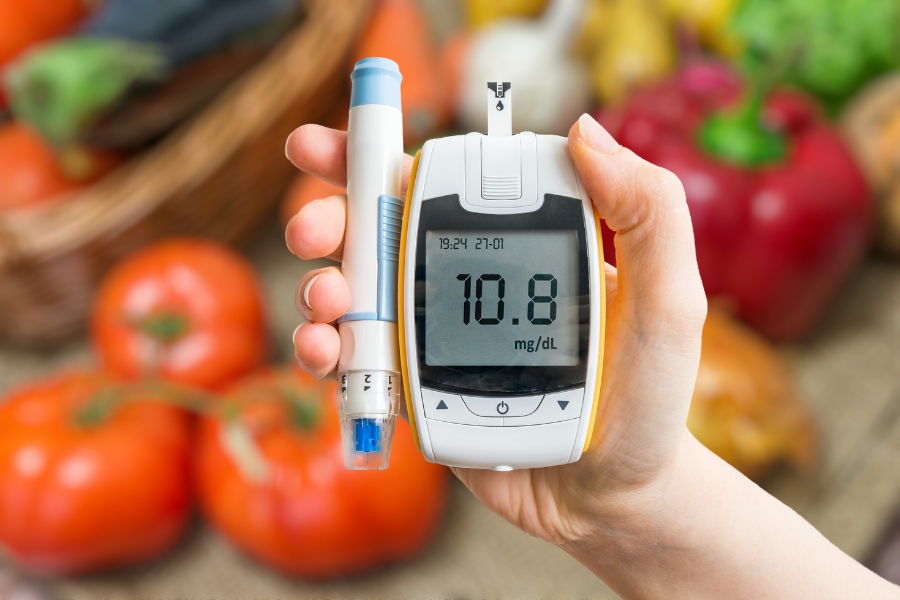
The Science Behind Veganism and Improved Insulin Sensitivity
Plant-Based Lifestyle Tips For Women
Author: Plant-Based Susy
Most people will learn about insulin at some point in life. Maybe a friend or family member has diabetes, or a discussion of insulin is overheard. Insulin sensitivity, or insulin resistance, is widespread. This is a condition where the cells stop responding appropriately to insulin. 15.5 – 46.5% of adults worldwide deal with insulin resistance.
Insulin resistance can be caused by many factors, including excess body fat, physical inactivity, and certain medications. One big contributor is a poor diet filled with highly processed and high-carbohydrate foods. Saturated fats have also been linked to insulin resistance. These foods are processed quickly, which can cause a spike in blood sugar and put more stress on the pancreas to produce insulin.
Those with insulin sensitivity or diabetes may consider adopting a healthy vegan diet. Not only are vegans less likely to get heart disease, obesity, and type 2 diabetes, but a vegan diet is also an excellent way to manage blood sugar. Veganism and diabetes go hand in hand when it comes to treatment and decreasing uncomfortable symptoms.
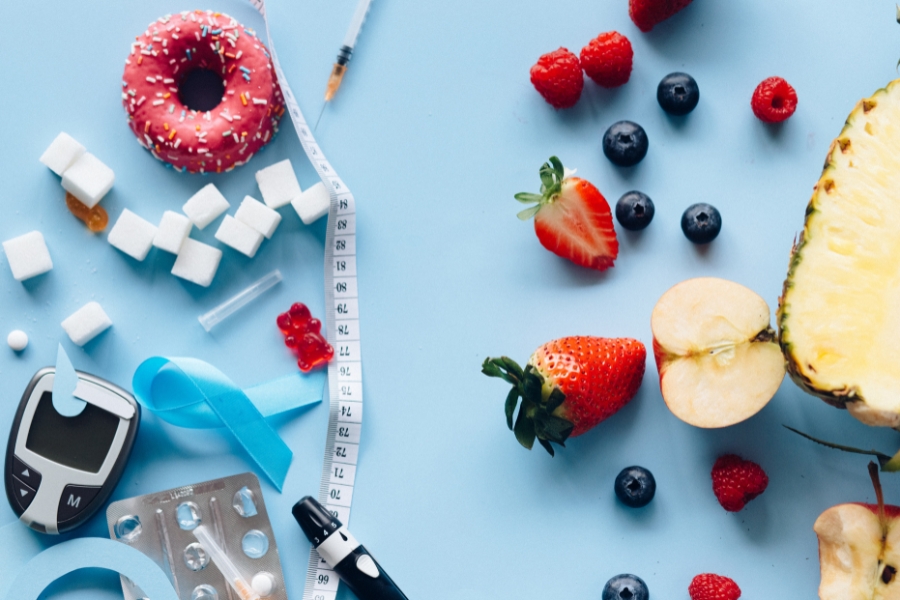
Table of Contents:
Are Insulin sensitivity and diabetes related?
Insulin is a hormone essential for regulating blood sugar levels and ensuring proper body function. It helps move glucose from the blood into cells throughout the body before it can be used for energy. Insulin also helps keep blood sugar levels normal and promotes bone development.
Insulin sensitivity and diabetes are related, but they're different. With insulin resistance, blood sugar is in a normal range. Prediabetes happens when blood sugar is higher than it should be but not high enough for diabetes. Both can lead to type 2 diabetes.
Insulin Sensitivity
Normally, food is digested into glucose, the body's main energy source. Glucose then enters the bloodstream, signalling the pancreas to release insulin. Insulin helps glucose in the blood enter muscle, fat, and liver cells, where it is either stored for later or used for energy. When glucose levels decrease, the body tells the pancreas to stop producing insulin.
The body doesn’t always operate this smoothly for everyone. Insulin sensitivity, or insulin resistance, occurs when the body doesn't respond correctly to insulin. Insulin sensitivity can affect anyone. In fact, research shows that 40% of adults in the United States are insulin-resistant.
It's impossible to tell if insulin sensitivity is present based on a feeling. A blood test is required to check blood sugar levels. Inactivity, being overweight, regularly eating too many carbs, and family history can make this condition more likely. For some people, insulin issues are temporary and can be treated, but some people have diabetes, which is a bit more complicated.
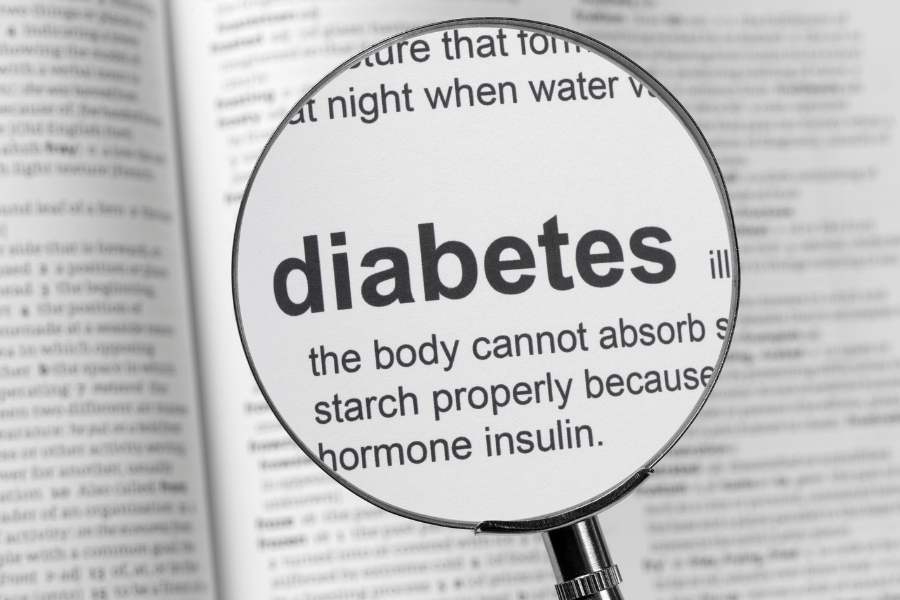
Type 1 Diabetes
Type 1 diabetes is believed to be caused by an autoimmune reaction that destroys the beta cells in the pancreas that create insulin. This reaction can happen for months or years before symptoms present themselves.
Those with type 1 diabetes have a pancreas that either doesn't make insulin or makes very little. Insulin is essential in helping blood sugar enter the cells in the body, which is a big part of energy. If the body doesn't have enough insulin, blood sugar can't get into the cells. This builds up in the bloodstream and is hard on the body. 2 million Americans have type 1 diabetes.
Symptoms of Type 1 Diabetes include:
Blurry vision
Feeling weak or tired
Mood changes
Unintentional weight loss
Increased hunger and thirst
Urinating often
At this time, there is no way to prevent type 1 diabetes, but there are ways to manage it. It is important to get educated about taking care of things at home and managing blood sugar. One of the biggest recommendations is to follow a healthy lifestyle. Of course, this means being physically active and managing cholesterol levels at home, but a vegan diet can also be extremely beneficial.
Type 2 Diabetes
Type 2 diabetes is a condition caused by a problem with how the body regulates and uses sugar, or glucose, as fuel. With type 2 diabetes, too much sugar circulates in the blood, leading to high blood sugar levels. This can ultimately lead to circulatory, nervous, and immune system disorders.
According to the CDC, more than 38 million Americans have diabetes, with over 90% having type 2 diabetes. Millions of people in the UK have diabetes, too, with the majority living with type 2 diabetes.
Symptoms of Type 2 Diabetes include:
Fatigue
Blurred vision
Increased hunger and thirst
Frequent urination
Infections
Numbness and tingling in hands or feet
Darkened skin in certain areas
Unintentional weight loss
There is no cure for type 2 diabetes, but it can be put into remission. When blood sugar levels are below the diabetes range, medication is no longer needed. Lifestyle changes are a big part of managing type 2 diabetes. This includes regular exercise, maintaining a healthy weight, and eating a well-balanced, nutritionally dense diet.

How Does a Vegan Diet Help Diabetes and Insulin Sensitivity?
Can veganism improve insulin sensitivity? Research says yes. According to a study conducted by the Physicians Committee, a low-fat vegan diet packed full of nutritious fruits, vegetables, beans, and grains improves insulin sensitivity and glycemic control in people with type 1 diabetes. The study found that a vegan diet reduces insulin needs and improves cholesterol levels, kidney function, and weight.
Load your plate with minimally processed whole foods to get the most out of the vegan diet. Ultra-processed foods (UPFs) may be fun to eat every now and then, but these foods can contribute to type 2 diabetes. Nutritionally dense food options are where it's at, so veganism and diabetes pair well together.
Most saturated fat comes from animal products, including meat and dairy. Butter, cheese, and pork are examples of foods with saturated fats. The American Heart Association recommends consuming less than 6% of total calories from saturated fats, which can lead to inflammation and heart disease. A healthy vegan diet is naturally higher in unsaturated fats, such as olive and sunflower oil.
Adding more colourful fruits and vegetables is linked to higher insulin sensitivity. Plant-based diets are high in antioxidants, minerals, fibre, and polyphenols. In addition to many other health benefits, these can help control glucose levels and protect against diabetes.
Plant-Based Antioxidants and Insulin Sensitivity
A diet with plenty of antioxidants can prevent many diseases. Antioxidants help regulate glucose metabolism, improve insulin secretion, and decrease insulin resistance. They also improve diabetic status. Thankfully, plant-based diets provide excellent sources of antioxidants.
Foods with antioxidants:
Berries
Artichokes
Beans
Lentils
Spinach
Cranberries
Dark chocolate
Nuts
Red wine
Plant-Based Fibre and Insulin Sensitivity
High-fibre diets are linked to decreased risk of heart disease, stroke, and type 2 diabetes. Studies show that when fibre is consumed, the risk of insulin resistance is reduced, and insulin sensitivity may increase. Soluble fibre slows digestion, helping to control blood sugar and cholesterol. Insoluble fibre helps increase insulin sensitivity and supports healthy bowels.
Foods with fibre:
Raspberries
Pear
Apple
Banana
Orange
Strawberries
Broccoli
Potatoes
Cauliflower
Carrots
Oats
Brown rice
Quinoa
Lentils
Chia seeds
Almonds
Beans
Plant-Based Minerals and Insulin Sensitivity
Essential minerals like zinc and magnesium are important to insulin function and glucose metabolism. Zinc plays a role in the immune system, wound healing, and metabolising nutrients. It is also involved in the synthesis, storage, and release of insulin. While plant-based eaters may need to put in more effort to meet zinc requirements, moderate amounts are found in vegan foods.
Foods with zinc:
Lentils
Chickpeas
Cashews
Pumpkin seeds
Dark chocolate
Magnesium has many benefits, including improved sleep, bone health, heart health, muscle function, and nerve function. This mineral also plays a role in improving insulin sensitivity. Magnesium deficiency is often seen in people with diabetes. A magnesium deficiency can lead to an unhealthy metabolism, which includes abnormal blood glucose and insulin levels.
Foods with magnesium:
Spinach
Dark chocolate
Almonds
Peanuts
Pumpkin seeds
Chia seeds
Bananas
Avocados
Edamame
Oats
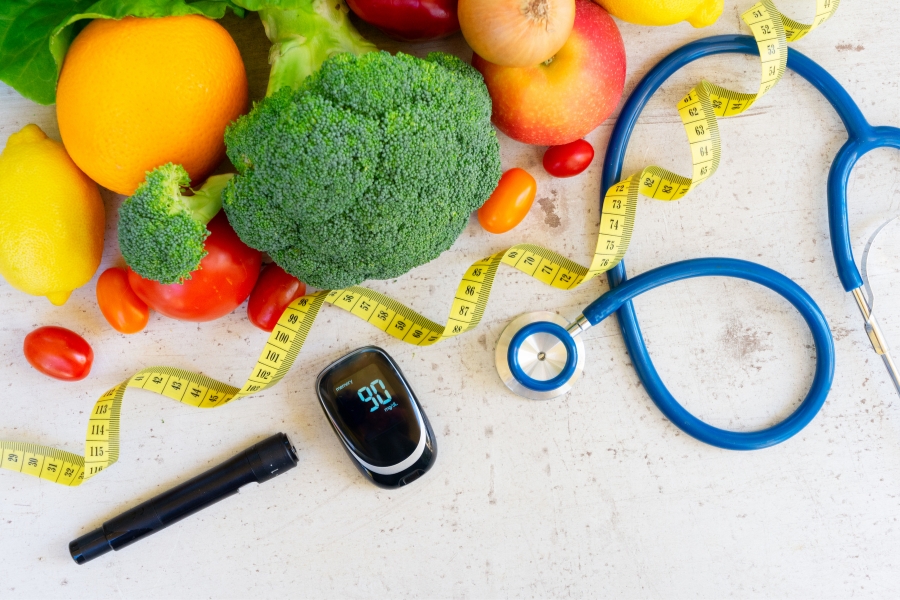
Polyphenols and Insulin Sensitivity
Polyphenols are plant compounds that have many benefits. Research finds that they can help manage blood pressure levels and keep blood vessels healthy. They promote circulation and reduce chronic inflammation. Polyphenols can also reduce blood sugar levels and keep them under control. On top of these benefits, polyphenols can improve insulin resistance, too.
Foods with polyphenols:
Oregano
Celery seed
Sage
Thyme
Rosemary
Peppermint
Berries
Cocoa powder
Nuts
Flaxseeds
Red onion
Artichoke
Spinach
Olives
Other Natural Ways to Improve Insulin Sensitivity
Insulin is essential to overall health. Prolonged high blood sugar can damage nerves and organs. Those who have trouble with insulin have a higher chance of developing pre-diabetes and type 2 diabetes. Thankfully, it's possible to improve insulin sensitivity at home. While dietary changes are very beneficial and at the top of our list, science suggests other ways to boost insulin sensitivity naturally.
Get More Sleep
Not getting enough sleep can increase insulin resistance, and getting more sleep can reverse the effects. Sleep duration, quality, and timing all play a role. Studies find sleep duration to be associated with insulin resistance. It's essential to get the recommended hours of sleep per night. Adults need 7 to 9 hours of sleep daily. Sleep disorders are associated with impaired glucose tolerance, so if poor sleep goes beyond your control, it may be time to get an assessment.
Lower Stress
Stress can put the body in fight-or-flight mode, stimulating the production of stress hormones. These stress hormones break down glycogen into glucose, leading to insulin resistance. Consistent stress keeps stress hormone levels high, which will continue this reaction of nutrient breakdown and increase blood sugar. Lowering stress is easier said than done, but effort is essential. Eating well, exercising, practicing mindfulness, and being kind to yourself can all go a long way in lowering stress.
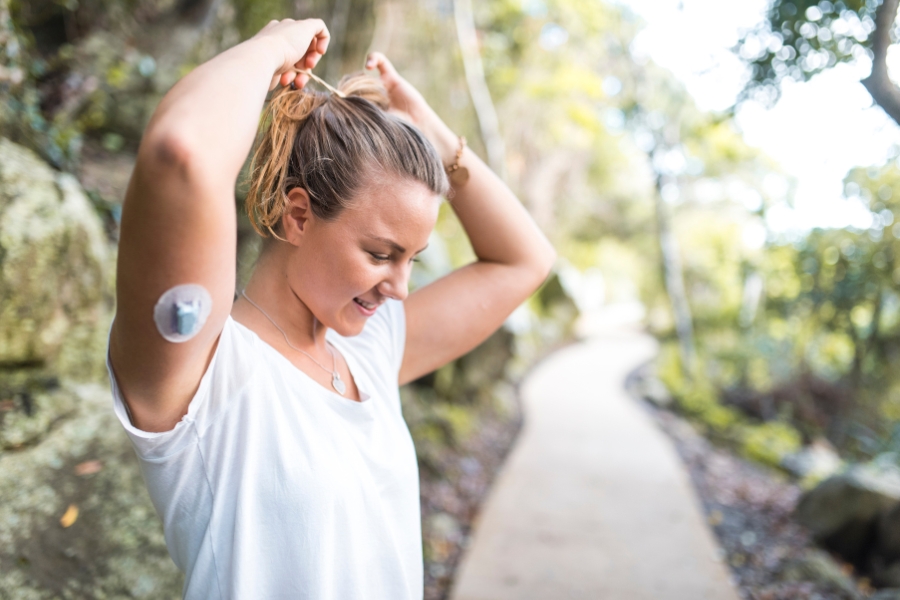
Exercise More
Regular movement and physical activity help move sugar into muscles for storage. According to the Diabetes Association, when muscles contract while exercising, cells are able to take up glucose and use it for energy, whether insulin is available or not. Exercise can improve insulin action and is recommended in the prevention and treatment of type 2 diabetes.
Losing weight can also increase insulin sensitivity. Excess weight can increase the risk of developing insulin resistance and diabetes. Weight loss is important not just to achieve body goals but also to take care of the insides. Losing weight and maintaining weight loss can help insulin work effectively. Veganism can be a helpful tool for weight loss.
The Bottom Line
Does a vegan diet help with diabetes? The answer is yes. There are many natural ways to increase insulin sensitivity, and one of the best is to make better choices in the kitchen. Positive dietary decisions and a nutritionally dense plant-based diet can make a huge difference. Adding certain foods and cutting out others can be life-changing.
Not only do plant-based diets help avoid saturated fats, but they are also high in antioxidants, minerals, fibre, and polyphenols. Antioxidants help regulate glucose metabolism, improve insulin secretion, and decrease insulin resistance. They also improve diabetic status. Key minerals like zinc and magnesium are important to insulin function and glucose metabolism. fibre and polyphenols are important to insulin sensitivity, too.
Adding more colourful fruits and vegetables to the diet can increase insulin sensitivity. Reducing carbs can also improve insulin sensitivity, as high-carb eating often spikes blood sugar. Lessening the intake of added sugars and trans fats is beneficial, too. Switching to a nutritionally dense plant-based diet takes care of a lot of this for you!
Science shows a natural connection between eating better and insulin sensitivity. Consider making the switch to veganism to help lower your risk of disease and increase your insulin sensitivity. Not only is this diet delicious, but it’s an excellent way to nourish the body and naturally heal or, at the very least, make things better.
Frequently Asked Questions
Is veganism good for people with diabetes?
There is no cure for diabetes, so switching to veganism won't magically make it go away, but this lifestyle can help people with diabetes drastically. Plant-based foods like fruit, vegetables, seeds, and nuts help treat many chronic diseases. Eating a vegan diet can stabilise blood sugar and improve nerve damage from diabetes. These diets have been linked to less hypertension, lower cholesterol levels, and lower levels of type 2 diabetes. Veganism can be beneficial to those with diabetes in numerous ways.
What is insulin sensitivity?
Insulin is essential for life and regulating blood glucose levels. Insulin sensitivity refers to how the cells respond to insulin. When insulin sensitivity is low, more pressure is put on the pancreas to increase insulin production and clear sugar from the blood. Insulin resistance is not suitable for overall health, but having increased insulin sensitivity is a positive thing.
Does a vegan diet help with diabetes?
Yes, a vegan diet can help with diabetes. Eating nutritionally dense plant-based foods rather than overly processed foods with low nutritional value is essential to see these results. This is easier than following a strict diet that requires calorie counting and small portions. With a vegan diet, people can still enjoy the foods they love while focusing on consuming plenty of fruit, vegetables, seeds, nuts, and pulses. These foods have been proven to help with multiple diseases.
Can people with diabetes be vegans?
A vegan diet is safe for most people, including those with diabetes. The important thing is to plan meals and make sure to get all of the necessary nutrients daily. Understand that it's important to limit processed foods. It may be best to speak with a medical professional before making any dietary switch as a person with diabetes. Knowing a patient's history and any specific issues allows them to tailor their advice. The vegan diet fits well with the dietary guidelines for those with diabetes.
Do vegans have a higher risk of diabetes?
Plant-based eaters have a lower risk of developing diabetes. Vegans and vegetarians navigate towards foods like fruits, vegetables, nuts, seeds, and pulses, which are known to treat chronic diseases. These foods can also help lower cholesterol levels and reduce cancer risk. It's clear vegans have an advantage when it comes to diabetes risk rather than a disadvantage.
What foods should people with diabetes avoid?
Diets play a significant role in managing diabetes. The foods we eat impact blood sugar levels, so it’s essential to pick and choose foods that help when diabetes is in the picture. It can also be helpful to know which foods to avoid.
Sugary beverages are one of the worst items for blood sugar spikes as these drinks have loads of added sugars. If standard water doesn’t hit the spot, try reaching for flavoured water or unsweetened tea. White bread, rice, pasta, baked goods, sweetened breakfast cereals, candy, fried foods, and dairy products aren’t great. A nutritionally dense plant-based diet kicks a lot of these to the curb.
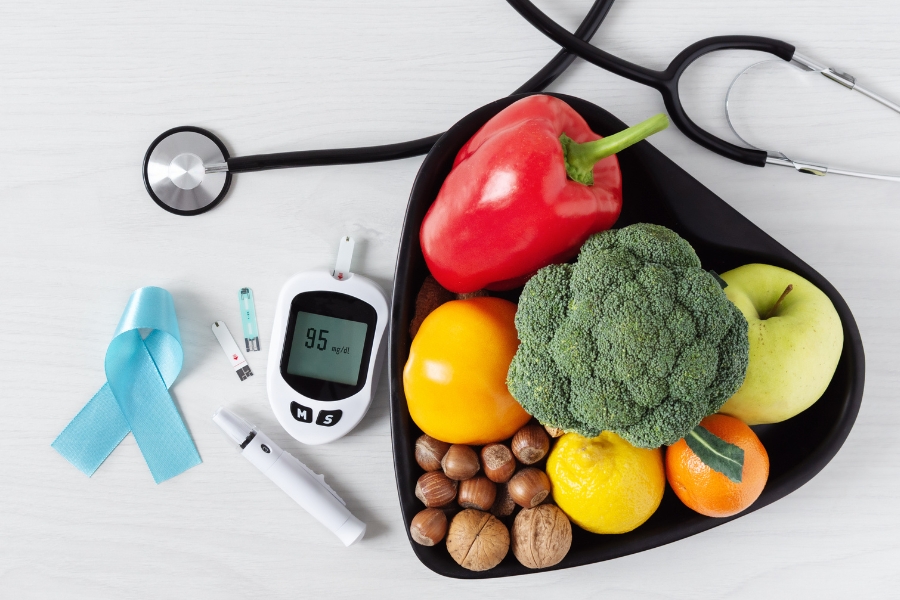
💚 "Happy Plant-Based Eating & Exercising!" 💚

Plant-Based Susy
Plant-Based Nutrition Professional & Weight Loss Coach
Empower Yourself: Embark on a Delicious Fat Loss Adventure


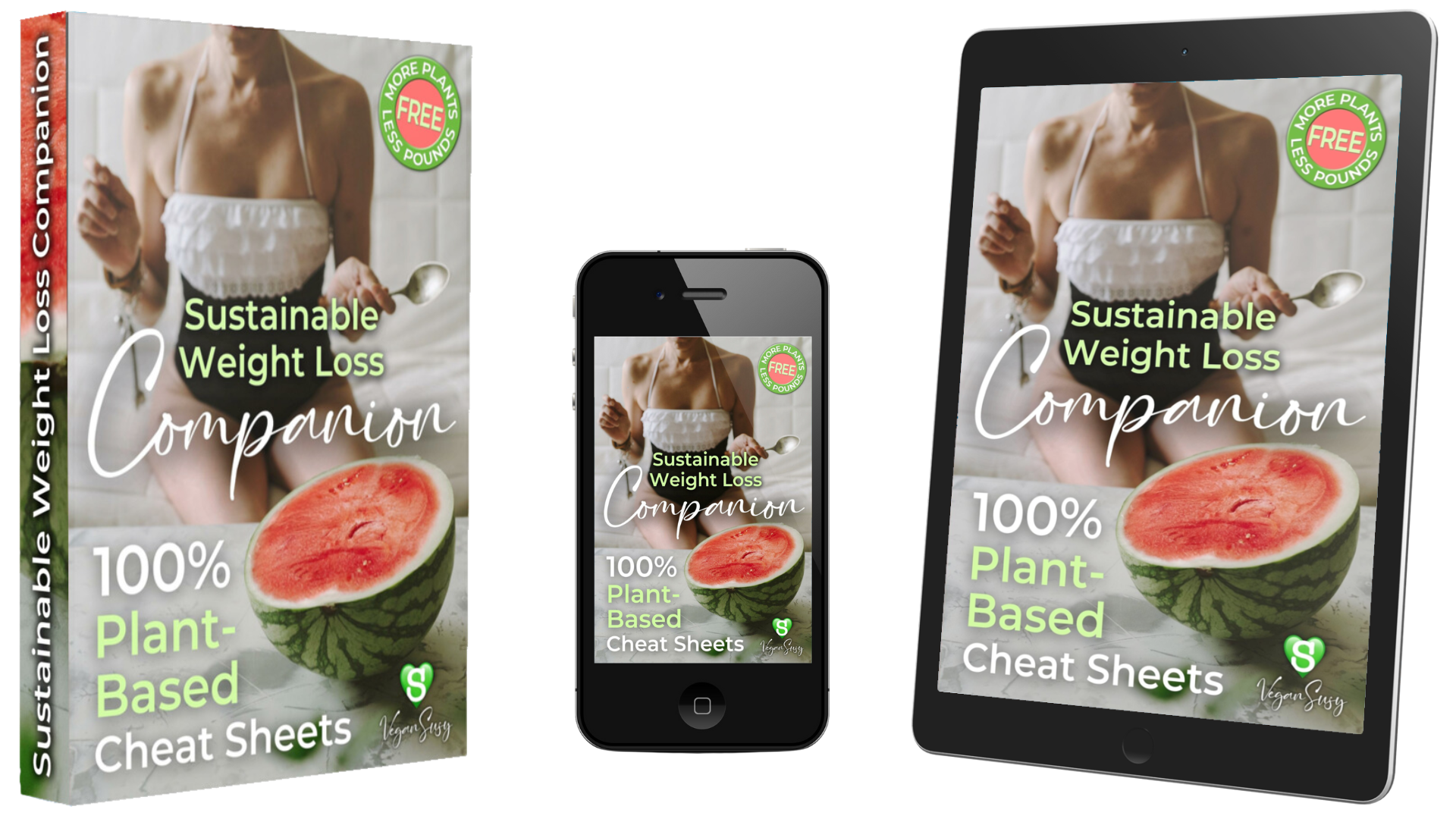
🍉 Get Ready to Jump Start Your Fitness Goals AND DISCOVER A HEALTHIER YOU!
🍉 Let's Make Your Fat Loss & Optimum Health Journey a Delicious Success Story!
🍉 Get The FREE Sustainable Weight Loss Companion eBook and CHEAT SHEETS!
More Free Resources
Unlock Your Transformation Today!
© 2025 VeganSusy Ltd. All Rights Reserved


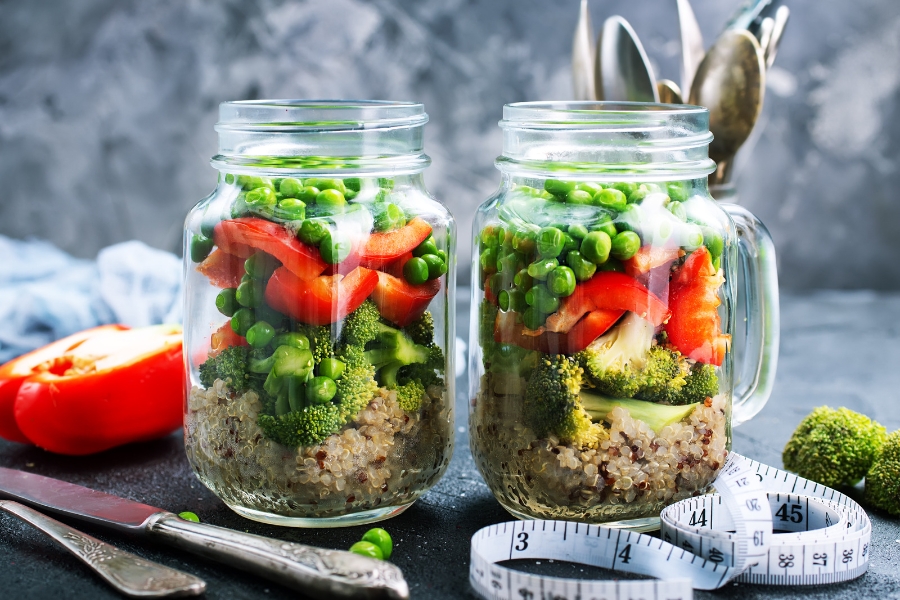
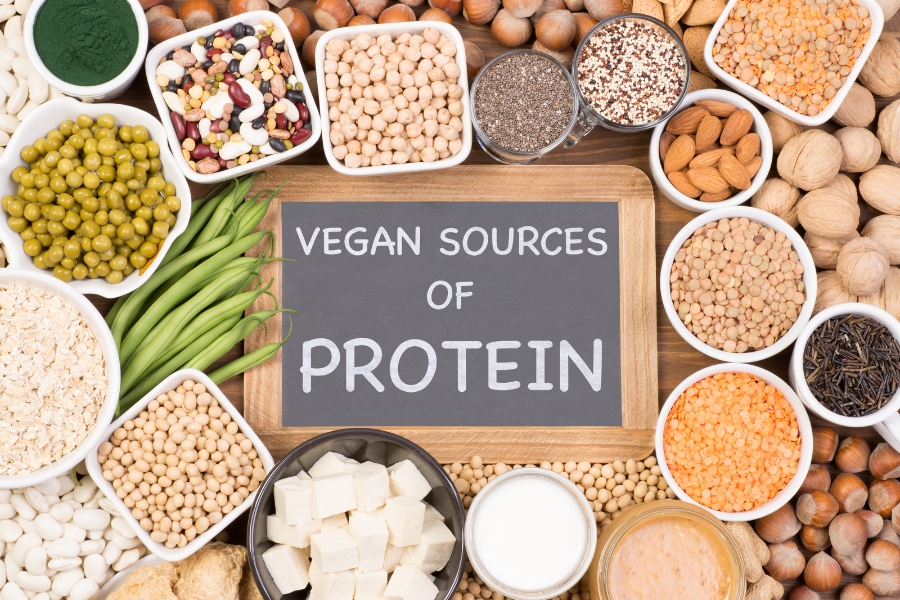







Facebook
Instagram
Youtube
Pinterest